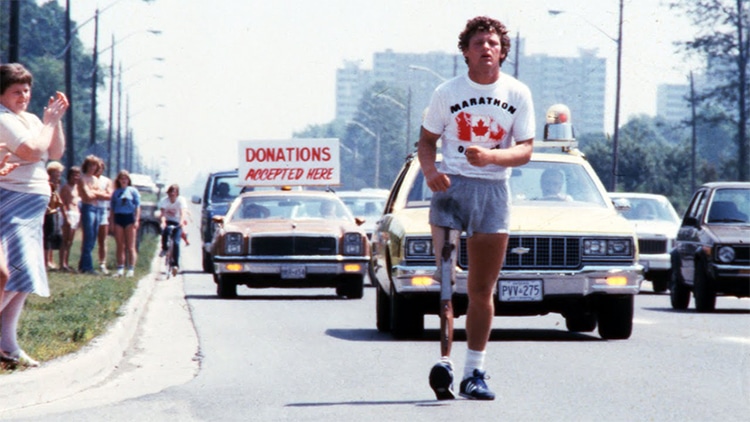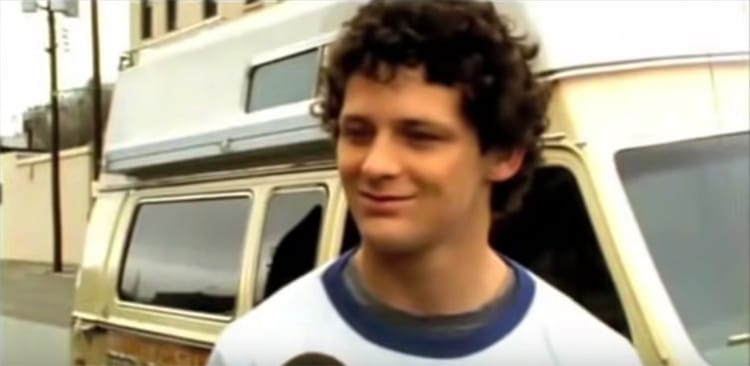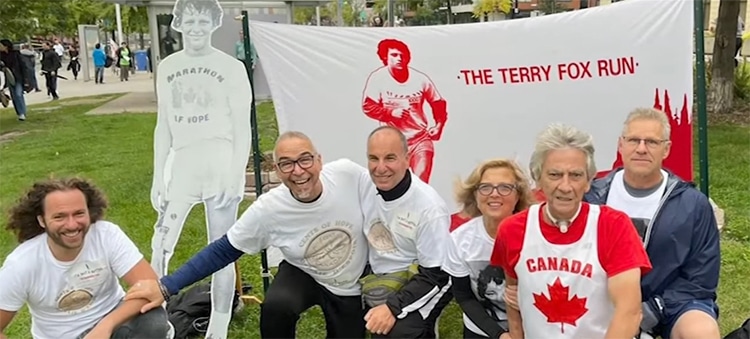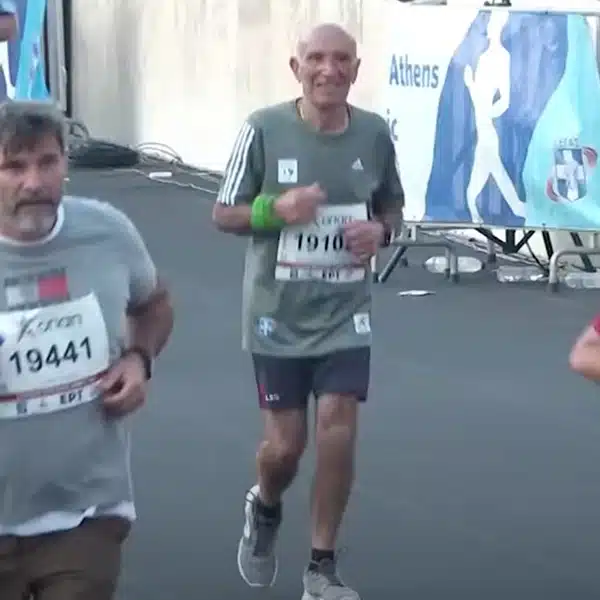
Photo: YouTube
A cancer diagnosis can be life-changing for anyone. Despite the decades of research, there is no definitive cure and most people with cancer, understandably, turn inwards—towards their treatment, their supportive family and friends, and their own mental and emotional well-being. Canadian Terry Fox, however, was a different kind of man. After his own diagnosis, which led to one of his legs being amputated, he expanded himself to become an international figure of inspiration. Fox started Marathon of Hope, running the distance of a marathon each and every day. His legacy of perseverance and determination to raise money for cancer research still heroically lives on today.
Fox was first diagnosed with a kind of cancer called osteo sarcoma while attending university in 1977. His leg was amputated above the knee pretty soon after he received the shocking news. Fox began to use an artificial leg, and quickly learned to run on it. By 1979, he had completed a full marathon—that’s 26.2 miles (42 km). Just months later, inspired by his own experiences with his cancer diagnosis and treatment, he began training for a cross-Canada run—the Marathon of Hope. His intention was to raise money for cancer research, and he wanted just $1 from every Canadian towards his cause.
Fox set off from the Atlantic Ocean side of the country on April 12, 1980, aiming for the Pacific Ocean on the other side. When he started, few people knew who he was, or what he was doing. As he continued to run, up to 30 miles per day, he began receiving an increasing amount of attention and public awareness, which translated into more and more money raised. “Today we got up at 4:00 a.m.,” Fox said while he was still running. “As usual, it was tough. If I died, I would die happy because I was doing what I wanted to do. How many people could say that? I went out and did 15 push-ups in the road and took off. I want to set an example that will never be forgotten.”
Sadly, Fox's cancer returned, this time in his lungs. Fox had to stop his epic coast to coast attempt on September 1, 1980, after running 3,339 miles (5,373 kilometers). He had, however, already raised $1.7 million CAD by the time he stopped running, and early the following year, the Marathon of Hope had exceeded his goal of $24 million in donations.
Fox passed away from his cancer in June 1981. His legacy, however, continues to grow, as Terry Fox Runs, organized by the Terry Fox Foundation, are held every year in cities throughout Canada, and other parts of the world. “A newly nurtured reservoir of compassion, combined with a fierce determination to bring an end to the suffering cancer causes, set Terry on a path that, quite simply, changed the world,” the Terry Fox Foundation states on their website.
Recently the Terry Fox Marathon was re-introduced in person across Canada. Because of COVID-19, the event had taken place as a virtual walk for the past two years. “Rain or shine, we're getting it done,” said one of this year's participants in the spirit of Fox. Over 650 communities across Canada ran with Fox's perseverance for cancer research this year. To date, Fox's marathon legacy has raised over $850 million for cancer research.
Be inspired by following the Terry Fox story in further detail on YouTube, or support his cause to contribute to cancer research by running through the Terry Fox Foundation website and Facebook.
After losing his leg to cancer, Canadian man Terry Fox attempted to run across Canada to raise funds for cancer research, covering the distance of a marathon every day.

Photo: YouTube
Terry Fox Runs, organized by the Terry Fox Foundation, are held every year in cities throughout Canada and other parts of the world.

Photo: YouTube
Over $850 million has been raised for cancer research through the Terry Fox Runs.
View this post on Instagram
The Terry Fox Run is back in person across Canada. Watch highlights from this year's run:
The Terry Fox Foundation: Website | Facebook | YouTube
Related Articles:
Keanu Reeves Donated 70% of ‘The Matrix’ Salary to Charity for Cancer Research
All Patients in This New Cancer Drug Study Are Now in Remission
Fascinating Video Reveals How Eliud Kipchoge Ran a Flawless Sub 2-Hour Marathon






















































































